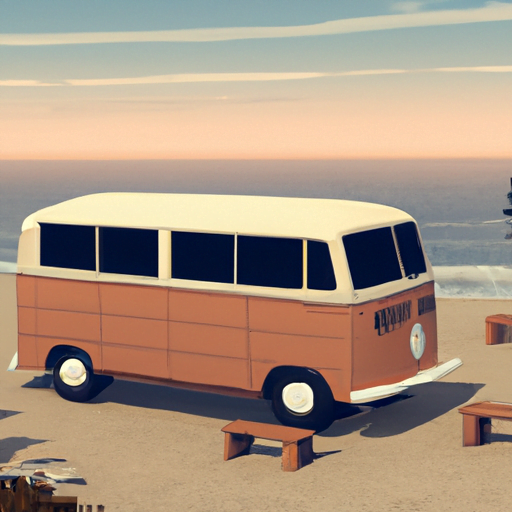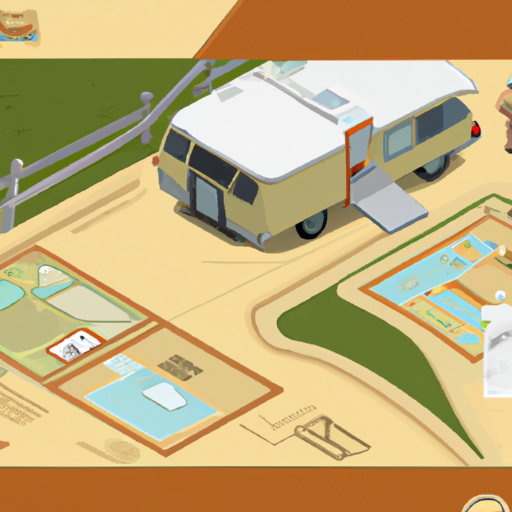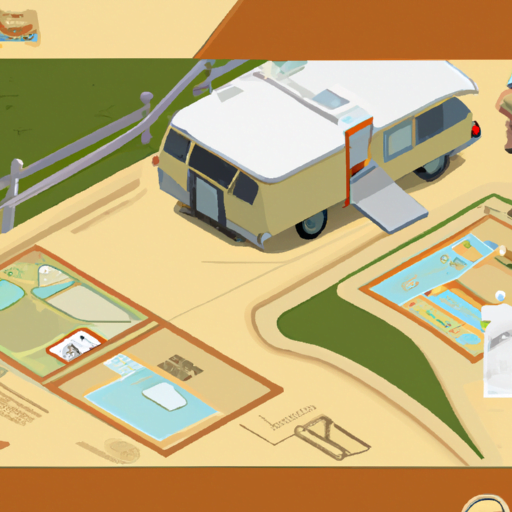Have you ever dreamed of escaping the hustle and bustle of city life? Imagine waking up to the sound of birds chirping instead of honking cars. Picture yourself surrounded by nature, with the freedom to go wherever you please. Off grid living offers a lifestyle that is becoming increasingly appealing to many. One popular option is living in a van – but is it a realistic choice? In this article, we will explore the possibilities of off grid living in a van, and discuss whether it can truly meet your needs and desires.
Living in a van may seem like a radical idea to some, but it is a lifestyle that has gained traction in recent years. With the rising cost of housing and the desire for a simpler life, more and more people are considering alternative living arrangements. The idea of living in a van provides the freedom to travel, explore new places, and live a minimalist lifestyle. However, before you jump into van life, it is important to consider whether this lifestyle is truly realistic for you.
There are several factors to consider when contemplating off grid living in a van. Firstly, you need to think about the practicalities of daily life. Can you handle living in a small space? Are you prepared for the challenges that may arise, such as finding access to clean water and disposing of waste? Additionally, you need to consider your personal needs and preferences. Are you someone who values your privacy and personal space? Do you require a stable and reliable source of income? These are all important questions to ask yourself before embarking on this unconventional lifestyle.
While the idea of off grid living in a van may seem romantic and adventurous, it is important to approach it with a realistic mindset. While it may not be suitable or feasible for everyone, for those who are willing to embrace the challenges and adapt to a minimalist lifestyle, it can be a truly transformative experience. In the following articles, we will delve deeper into the practicalities and logistics of living in a van, and provide you with the information you need to determine whether it is the right choice for you.

Exploring the Possibilities of Off Grid Living: Can I Realistically Live in a Van?
Off grid living has gained popularity in recent years as people seek to disconnect from the traditional way of life and embrace a simpler, more sustainable lifestyle. Living off grid means relying on alternative sources of energy, such as solar power, and finding ways to sustain yourself without being tied to the grid. One option that has become increasingly popular is van life, where individuals choose to live and travel in a converted van. In this article, we will explore the possibilities and challenges of off grid living in a van, and help you determine if it is a realistic option for you.
Understanding Off Grid Living
Living off grid means living independently from public utilities such as water, electricity, and sewer systems. It involves generating your own power through solar panels or other renewable sources, collecting and filtering rainwater for use, and finding sustainable ways to manage waste. Off grid living provides a sense of freedom and self-reliance, while also reducing your environmental footprint.
Benefits of Off Grid Living
There are numerous benefits to living off grid. Firstly, it allows for a more sustainable lifestyle, as you are not relying on finite resources and are instead using renewable energy sources. It also promotes self-sufficiency and resilience, as you learn to live with limited resources and rely on your own skills and capabilities. Off grid living often takes individuals out of the hustle and bustle of urban life, offering a chance to connect with nature and enjoy a slower pace of life.
Challenges of Off Grid Living
While off grid living has its benefits, it also comes with challenges. One of the main challenges is the initial cost of setting up an off grid system, which can be quite expensive. Installing solar panels, water filtration systems, and other necessary equipment can require a significant investment. Additionally, living off grid requires a certain level of technical knowledge and skills to maintain and troubleshoot the systems. Furthermore, depending on your location, access to certain amenities and services may be limited, making day-to-day living more challenging.
Van Life: A Viable Option for Off Grid Living?
Van life has gained considerable attention in recent years, with many individuals choosing to convert vans into livable spaces and embrace a minimalist lifestyle on the road. Living in a van allows for flexibility and the ability to travel while still living off grid. However, van life also presents its own unique set of considerations and challenges.
Advantages of Living in a Van
One of the main advantages of living in a van is the freedom it provides. With a van, you have the ability to change your scenery at any time, exploring new places and always having your home with you. Van life also promotes minimalism, as living in a small space requires you to declutter and prioritize the essentials. Additionally, living in a van can significantly reduce living expenses, as you eliminate the need for rent or a mortgage.
Considerations before Living in a Van
Before embarking on van life, there are several important factors to consider. Firstly, van living requires careful planning and research. You will need to consider the size and type of van that suits your needs, as well as the regulations and permits required for living in a van in different areas. It is also essential to assess your personal comfort with a minimalist lifestyle and the challenges that come with living in a small space. Furthermore, van life often requires adapting to a nomadic lifestyle, which may not be suitable for everyone.
Essential Equipment and Amenities for Van Living
When living in a van, there are certain essential equipment and amenities that are necessary for a comfortable and sustainable lifestyle. Solar panels are a popular choice for van dwellers, as they provide a reliable source of renewable energy for powering appliances and charging devices. A water filtration system is also essential for van living, as it allows you to collect and purify water for drinking, cooking, and cleaning. Additionally, a composting toilet and proper waste management system are crucial for minimizing environmental impact.
Legal and Safety Aspects of Van Living
Before living in a van, it is crucial to familiarize yourself with the legal and safety aspects of van living. Different areas have specific regulations and restrictions regarding overnight parking and camping in vehicles. It is important to research and adhere to these regulations to avoid fines or other legal issues. Safety is also a concern when living in a van, so it is advisable to invest in security measures such as an alarm system and sturdy locks to protect your belongings.
Tips for Successful Van Living
To make the most of your van life experience, here are some tips for successful van living:
- Plan and research thoroughly before embarking on van life. Consider your needs and priorities to ensure a comfortable living environment.
- Embrace minimalism and declutter regularly to create a functional living space.
- Stay organized and maximize storage solutions to make the most of limited space.
- Connect with the van life community for support, advice, and inspiration.
- Practice sustainability by reducing waste, conserving water and energy, and being mindful of your environmental impact.
- Stay flexible and adaptable, as van life often requires adjusting plans and expectations.
Conclusion
Living off grid in a van is an exciting and viable option for those seeking a simpler, more sustainable lifestyle. While it comes with its own set of challenges, van life allows for freedom, flexibility, and a closer connection with nature. By considering the advantages, challenges, and necessary preparations, you can determine if living in a van is a realistic and fulfilling choice for you. So, are you ready to explore the possibilities of off grid living and embark on a van life adventure?





